Russian Divers Tested Equipment in Extreme Conditions
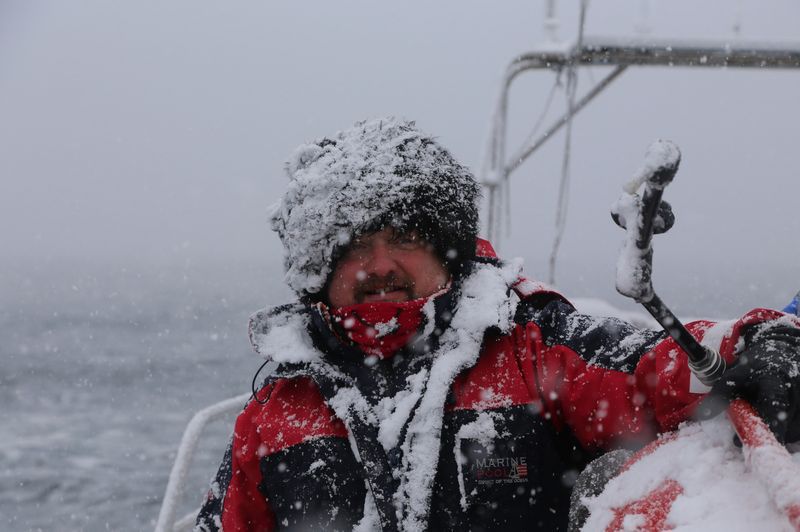
Due to a number of factors diving in the waters of the Antarctic belongs to the category of baffling complexity. Among such factors are: cold water, strong streams, icebergs which can collapse any moment even because of air bubbles exhaled by a diver, strong waves, etc. In case of emergency it is difficult to provide any medical help because of the remoteness. Dives to a depth of less than 20 meters are considered relatively safe. In scientific purposes experts dive up to 65 meters risking their lives.
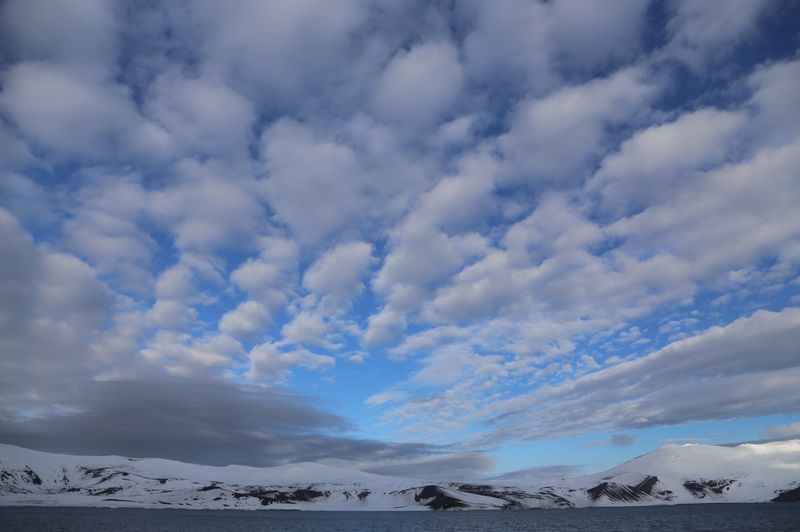
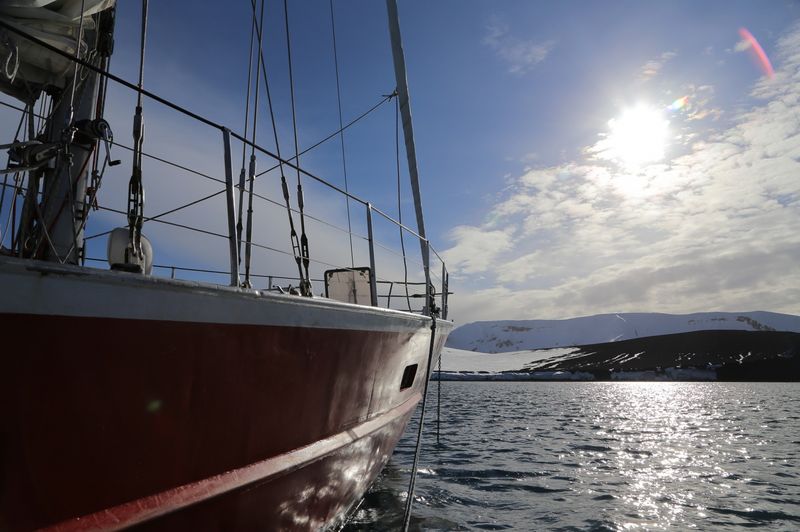
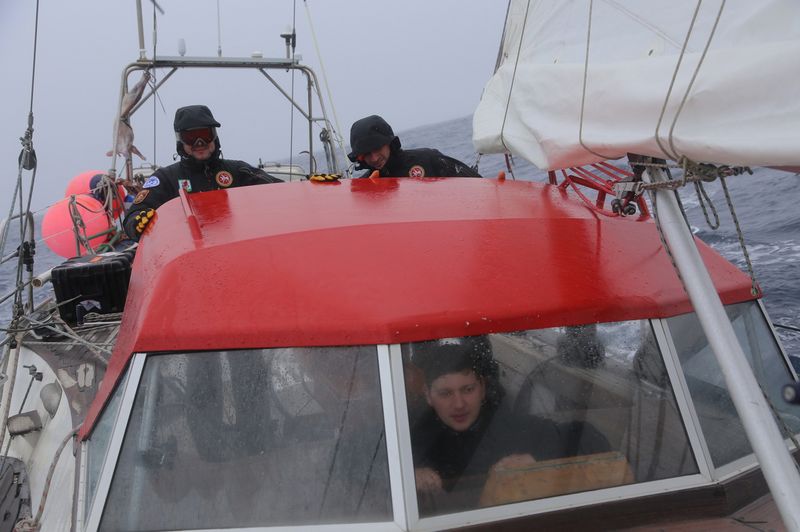
On December 10 the team leader Dmitry Schiller dived in the Antarctic waters near Deception Island. The maximum depth of his dive was 97 meters.
"In short - it was very hard. Perhaps it was my most difficult mission for the last five years," said Dmitry Schiler
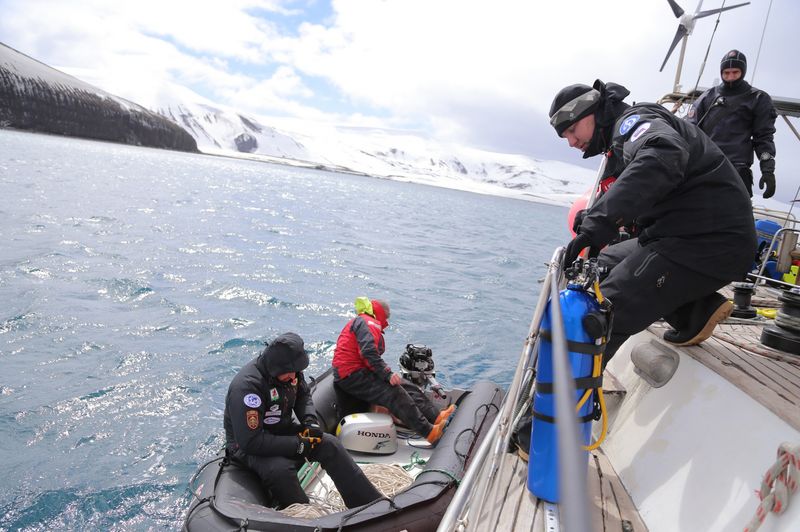
In 1965, as part of the 11th Antarctic expedition a hydro-biological team consisted of three hydrobiologists was created. In 1965-1966, using scuba gears, costumes and underwater cameras available at the time they made over 150 dives. The maximum depth they reached was more than 50 meters. However, the Antarctica 100 expedition had different goals: the object of the study was not the waters of Antarctica or Hydrobiology of the oceans surrounding Antarctica, but themselves. Their goal was to develop deep-sea diving techniques using conventional equipment in extreme conditions.
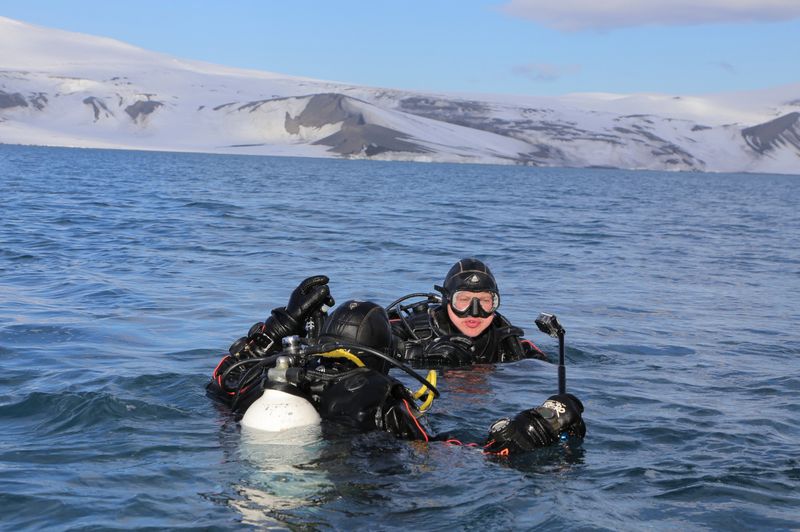
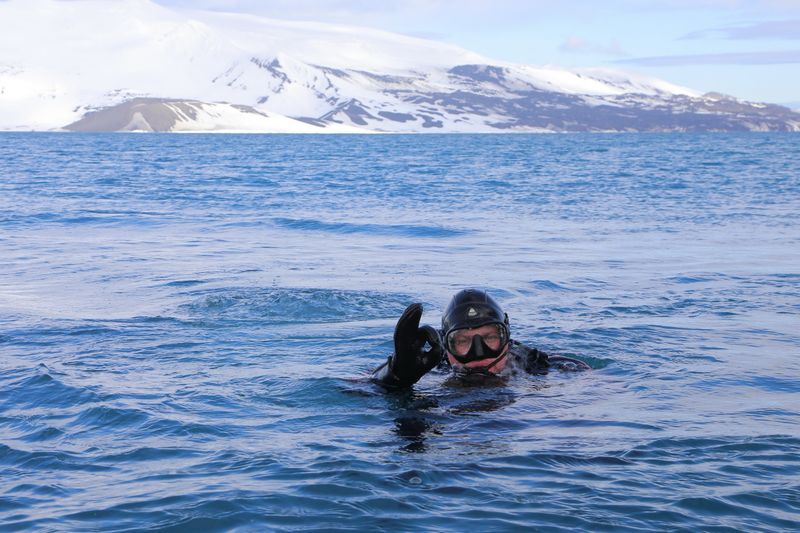
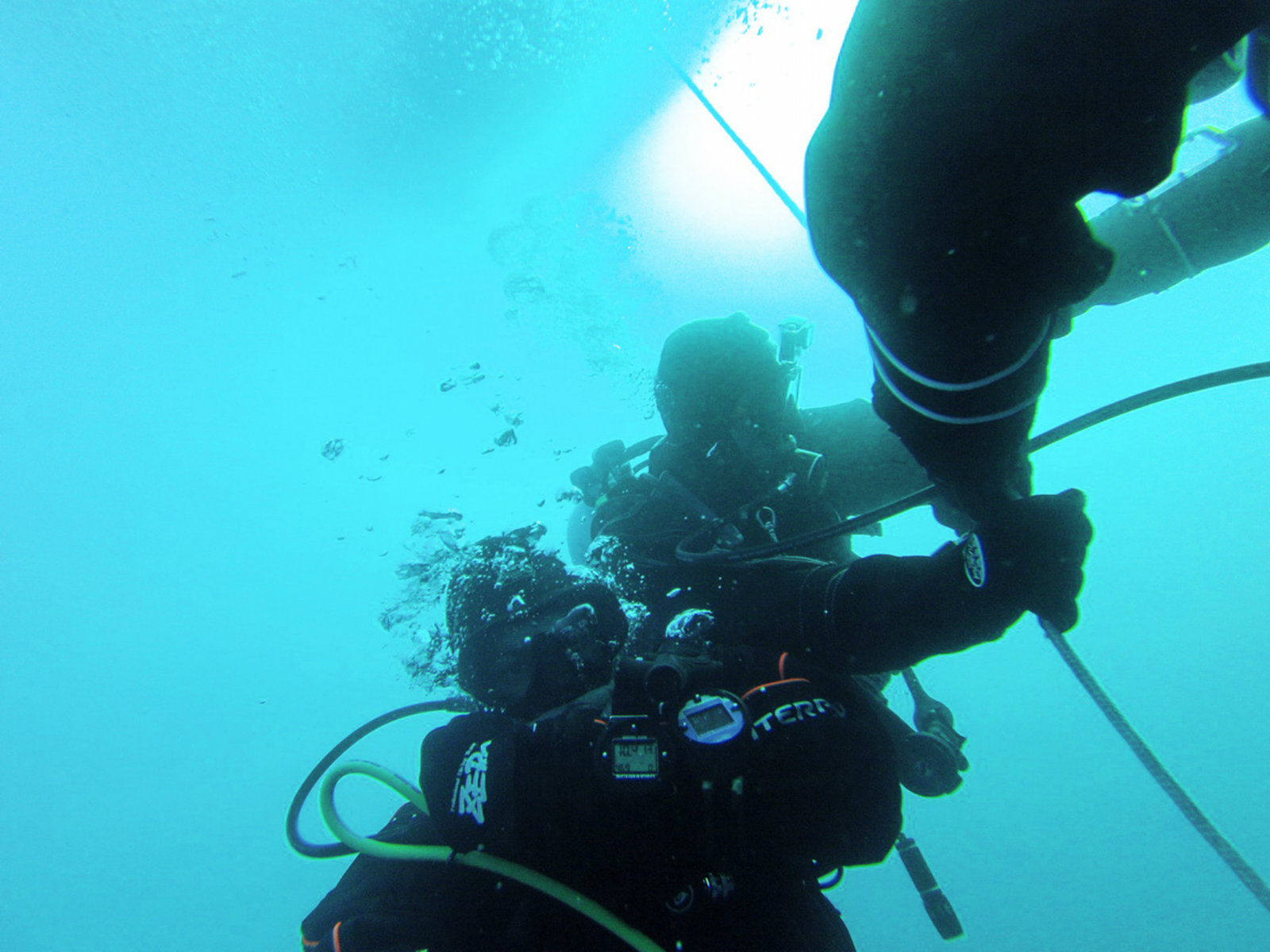
Right after the members of the expedition returned to Moscow they held a press conference at the Headquarters of the Russian Geographical Society in Moscow and told the journalists about their travel. At the end of the press conference, to the applause of the audience, Michael Shkolnikov presented CMAS certificates (World Underwater Federation, the first president of which was Jacques-Yves Cousteau) to the team, confirming a world record the team had made during the second stage of the expedition: the deepest ice diving into a pond located near the cold pole of the northern hemisphere of the Earth - Lake Vorota in Yakutia. The depth was 59 meters 60 centimeters.
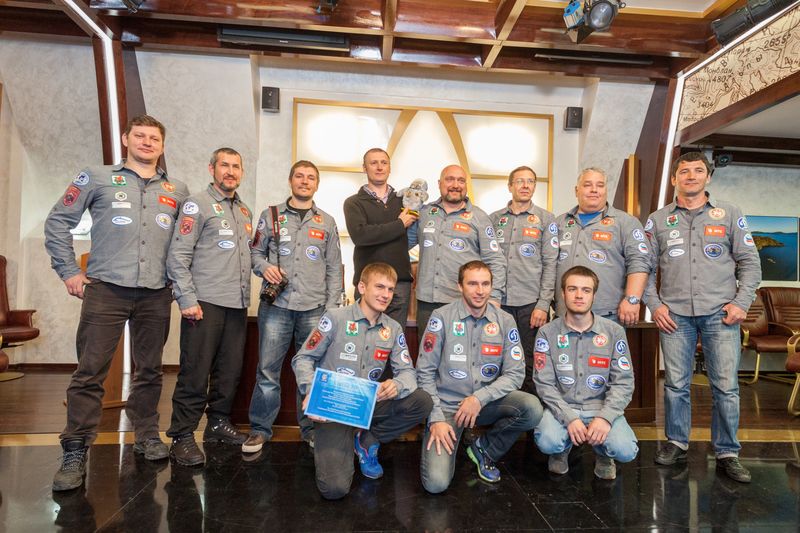
the expedition team
Photos: © all photos were provided by the archive of the expedition
Source: http://www.rgo.ru








